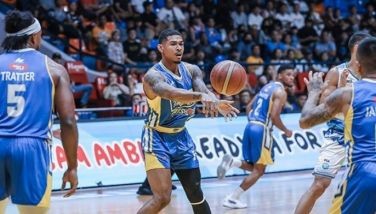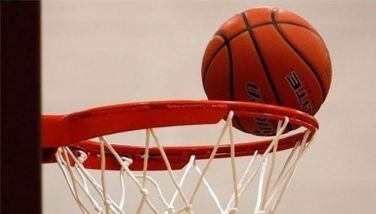Professionalizing amateurs (Part 2)
In Saturday’s column, this writer discussed the gray area that amateur boxing finds itself in, and how it seeks a new definition in an age where its old form no longer resonates with a majority of its audience, there are also other cases wherein amateur sports as increasingly being looked at as becoming more professional, as competition increases and athletes find themselves more commercially viable commodities. This is no more evident than in collegiate sports in the Philippines. In some cases, it has entered new territory and stretched the boundaries of amateurism.
In the broadest sense of the word, the traditional definition of “amateur” means someone who plays a sport with absolutely no financial compensation of any kind, in or out of the playing arena. This means that, in theory, college athletes should not have endorsements, be paid for appearances, or receive money (and some forms of compensation in kind) for anything they do until they turn pro. In fact, even high school athletes attending camps sponsored by multinational sports brands cannot be approached by college coaches, as it would be construed as a forbidden form of recruiting. It is only when an athlete declares himself eligible and proper channels are used that such a negotiation can take place. In countries like the United States, the rules are very strictly enforced. Remember when LeBron James was “banned” for two games for receiving sneakers? That was a somewhat extreme application of such rules.
In the Philippines, the implementation of the rules is somewhat more open, and the interpretation, well, there doesn’t seem to be just one interpretation. As fellow broadcaster and blogger Bob Guerrero mentioned in a recent blog, he allegedly witnessed a collegiate athlete receiving a cash prize for a job well done, and raised the question of whether or not we might as well consider varsity athletes as professionals. This raised some issues that are worthy of a lengthy discussion, and are deeper and more convoluted than what a mere cursory observation may unravel.
Firstly, the problem is one of enforcement and regulation, not compensation. Students are, on paper, compensated through free education, board, lodging and allowances, as well as free training equipment and travel. If they are given anything else, it is then a question of rules being implemented. Also, if sponsors decide to reward athletes’ performances (like a “best player of the game” incentive), the only involvement of the school is whether or not the student is allowed to keep it. In other countries, the prize money goes to the player’s school in the form of athletic equipment, books or scholarships. In this regard, do we know for a fact what the rule is in our collegiate leagues, and if any or all of the athletes donate their prizes back to the school or even a charity?
In the US, even when select amateur athletes are invited to camps sponsored by sports brands, they are required to return everything they are given or buy them at a discount, even the shoes and uniforms they’ve used. I remember standing in a ballroom in Suwanee, Georgia, after a sports apparel brands basketball camp for high schoolers, surrounded by over 300 sweaty, recently used jersey and shorts 10 years ago. At the time I had two thoughts: how easy it is to enforce rules if you really want to, and how hard it must be to be the one to collect all these uniforms and bring them back to wherever they were going to go for disposal.
As for the leagues selling broadcast rights, that is their right, and it helps sustain the schools, not just their athletic programs. The schools augment the fees they collect by selling franchises. The school administrators and owners are professional; the students are not. This is why major corporations are getting into the school business, because it has two built-in markets: the current student population, and the alumni. Having a successful athletic product brings out the school spirit, unquestionably. As the saying goes, success has a thousand father, failure is an orphan.
In the end, if there is ever a change, I wouldn’t want people to think that it is because we condone a shift to a more corruptible system just because there are flaws in the current one. It’s another case of changing the horse because there’s something wrong with the rider. Both need to be managed. There are already problems because schools feel they own the athletes (hence the various eligibility issues). What more if they were paid? A new system may further curtail the athlete’s freedom to transfer to the school and course he wants in the future.
If school athletes are receiving money or outlandish gifts like houses, cars and jobs for their parents, then this must be investigated, or it will continue to smear the name of college sports. At the end of the day, those who profit from using more resources to ensure victory will do nothing to change the system, or fight to preserve it. We simply have to unmask them for who they are.
* * *
Follow this writer on Twitter @truebillvelasco.
- Latest
- Trending































